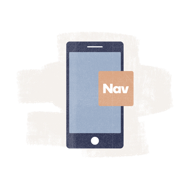By 2023, the U.S. construction industry is projected to reach a record of $1,804.8 billion. Therefore, it’s no surprise that many entrepreneurs are on a mission to grow their construction businesses.
If you’re one of these entrepreneurs, you’re likely dealing with high insurance rates, a long list of licensing and permit requirements, and expensive material and equipment costs. This can lead to cash flow issues, which make it difficult to cover invoices on time, pay employees, and purchase the tools you need to succeed.
Fortunately, a construction line of credit can help. With a construction line of credit, you can take care of cash flow shortages and steer your business toward growth. Let’s take a closer look at the ins and outs of construction loans so you can make an informed financing decision for your business.
Types of Construction Line of Credit
There are a few different types of construction lines of credit including:
- New Construction Loan: A new construction loan is a short-term financing option that can allow you to borrow capital to buy a lot, cash out on a lot, or build a new home to sell.
- Construction-to-Permanent Loan: With a construction to permanent loan, you can receive the funding you need to cover the construction costs of a home. Once the home has been built, the loan converts into a mortgage.
- Renovation Construction Loan: If you’re buying a fixer upper to fix up and eventually sell, you may choose a renovation construction loan. This type of loan wraps up the cost of any renovations you plan to make with a mortgage.
Requirements for Construction Lines of Credit
If you’d like to take out a construction line of credit, a lender will likely look at the following.
-
- Income: Before they approve you for a loan, a lender will want to check your income. You’ll be asked to provide your monthly or annual income before taxes. You may have to show your tax returns from the previous two years.
- Credit History: A lender will pull your personal credit history to find out what kind of borrower you are. Of course, the higher your credit score is, the lower interest rate and more favorable terms you’ll secure. Try to aim for a credit score of at least 680.
- Outstanding Debts: Once the lender looks at your credit report, they’ll know about the current balances you have on your credit cards, loans, and other types of financing. If possible, keep your debt-to-income ratio (your monthly debt payments divided by your gross monthly income) to less than 45%.
- Detailed Construction Plans: Typically, a lender will ask you to submit detailed construction plans so they know what the money will be used for. The plans should include information on the materials you plan to use, room dimensions, and just about everything else.
- Down Payment: You’ll likely have to come up with a down payment of anywhere between 20% to 25%.
Land Requirements for New Construction Loans
If you decide to take out a new construction loan, the land you plan to build on must be fully entitled. This means it will need to go through the legal process of receiving approvals from local authorities. You’ll provide the authorities with your building plans so they can carefully review them and let you know whether you can proceed.
While this process can be expensive and time intensive, it’s essential because it dictates what you can and cannot do with the land and your project. It’s important to note that the specific land requirements for new construction loans will vary.
How Construction Business Loans Can Help Your Business
There are several ways construction loans can benefit your business. Here’s a brief overview of them.
Working Capital
If you’re in the construction industry, it can be difficult to cover all your costs. Heavy equipment, employee wages, business taxes, and other day-to-day expenses can add up quickly. With a construction loan, you can ensure you have enough cash to handle all of your expenses year round. It can be particularly beneficial if you’re going through a slow sales cycle due to the weather, industry trends, or the economy.
More Freedom
With a construction loan, you’ll enjoy more freedom because you’ll have money to pay for expenses that’ll help expand your business. Without financing, you may be stuck and have a difficult time covering everyday costs that are essential to your business growth.
Buy Equipment
Construction equipment is expensive, to say the very least. However, it’s a necessity for any construction business. A construction loan can provide you with the funds you need to purchase the right equipment for the types of projects you usually take on. You can use it to buy excavators, skid steers, wheel loaders, and the other equipment you need to perform your job safely and efficiently.
Hire More Crew
Your crew is the lifeline of your business. You may have the fanciest, highest quality equipment but if you don’t have enough contractors or hire the wrong ones, things can go south very quickly. A construction loan can give you the opportunity to hire more contractors or invest in those with more training and experience.
Additional Funding Options for Construction Business
If a line of credit isn’t a good fit, consider these alternative funding options.
SBA Loans
The Small Business Administration (SBA) partners with banks and other lenders to help small business owners obtain funding. If you opt for an SBA loan, you’ll enjoy a number of benefits including longer loan terms, interest rate caps, and lower down payment requirements. You can also receive access to seminars, courses, and other business tools.
Just keep in mind that SBA loans are tough to qualify for as you must have a two year business history and good credit. In addition, you’ll need to provide a business plan and extensive financial documentation to apply.
Bank Loans
A bank loan is a loan you secure from a bank. If you have good credit and don’t need the cash right away, a bank loan may be the way to go. While it can take up to six months to get approved for one, you may be able to lock in a low interest rate that leads to affordable monthly payments.
Most banks offer both short-term financing and long-term financing loans so it’s a good idea to shop around and find the ideal loan for your unique needs. When you explore your options, you’ll likely find that big banks have rigid lending rules while smaller ones offer greater flexibility.
Business Credit Cards
A business credit card works just like a personal credit card. You can spend as little or as much as you’d like up to a certain credit limit. You’ll only pay interest on the amount you borrow. Most business credit cards come with cash back or points programs that can reward you for your spending.
Additionally, some of them offer 0% intro APR offers where you won’t owe any interest for a certain period of time. Although your credit history will determine the credit limit you receive, you may be able to secure tens of thousands of dollars in credit.
Nav’s Final Word: Construction Line of Credit
A construction line of credit is a valuable financial tool that can help you build and grow your business. You can use it to secure the capital you need to pay for equipment and materials, hire more contractors, and get through slow periods.
If you do decide to move forward with a construction loan, be sure to check the fine print and familiarize yourself with the loan agreement and repayment terms. This way you know what you’re signing up for and can avoid unwanted financial surprises down the road.
This article was originally written on February 4, 2020.



Have at it! We'd love to hear from you and encourage a lively discussion among our users. Please help us keep our site clean and protect yourself. Refrain from posting overtly promotional content, and avoid disclosing personal information such as bank account or phone numbers.
Reviews Disclosure: The responses below are not provided or commissioned by the credit card, financing and service companies that appear on this site. Responses have not been reviewed, approved or otherwise endorsed by the credit card, financing and service companies and it is not their responsibility to ensure all posts and/or questions are answered.